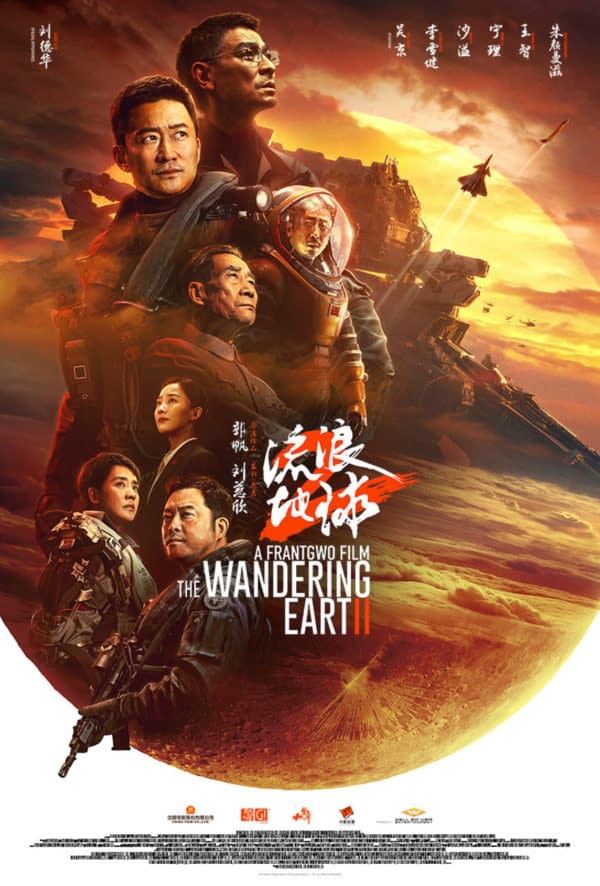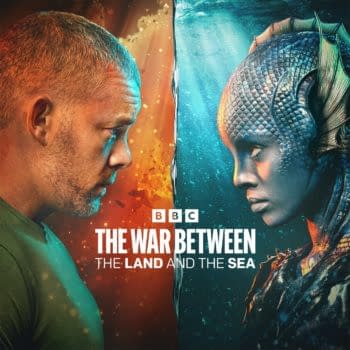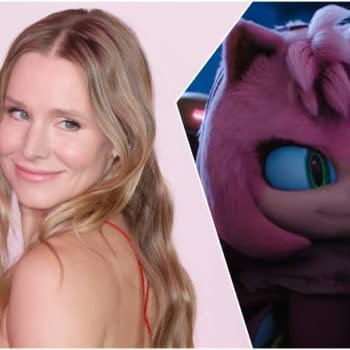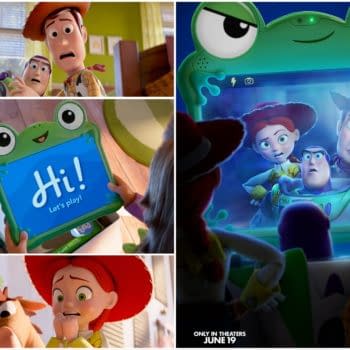Posted in: Movies, Review | Tagged: andy lau, chinese science fiction, Liu Cixin, The Wandering Earth 2, wu jing
The Wandering Earth 2: Chinese SciFi Blockbuster is a Flawed Epic
The Wandering Earth 2 is a prequel that improves on the first movie, is epic in scale with hard science fiction but flawed by melodrama and still derivative of Hollywood blockbusters.
One of this year's big blockbuster movies at Chinese New Year is The Wandering Earth 2, the follow-up to the 2019 hit that announced to the world that China could make its own Roland Emmerich-style Science Fiction CGI FX extravaganza that's every bit as big and goofy and anything from Hollywood. It was a declaration that China had learned its lessons (not all of them good) from Hollywood and created homegrown genre fare.
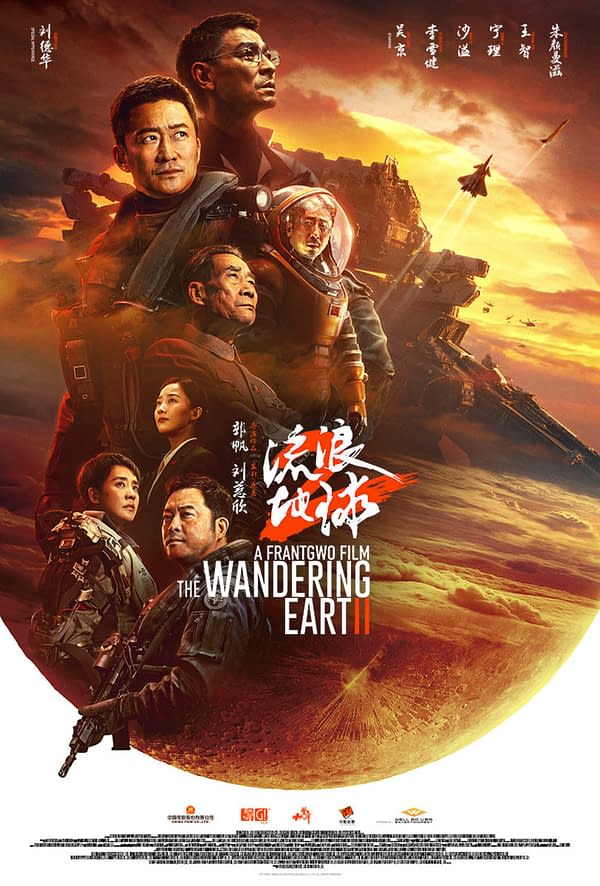
The Wandering Earth 2 is a prequel you can watch without seeing the first movie. It's closer to Liu Cixin's original novella, covering the decades where the world discovers the sun will destroy the solar system in a hundred years and how the governments unite under a Chinese government proposal that over ten thousand giant rocket engines are built all over the Earth to push it out of the sun's orbit and out of the solar system to find a new more stable sun to orbit around four light years away. The journey would take two-and-a-half thousand years. That's a hundred generations of human families away. Unlike the first movie, this one is closer to the original novella, covering several eras leading up to the Earth, leaving its orbit around the sun.
A Science Fiction Epic that feels Epic
What The Wandering Earth 2 does better than most Hollywood blockbusters is use its CGI effects to convey a sense of awe. We've gotten too used to Marvel movies using CGI to the point of weightlessness and increasingly dull and generic third-act CGI fights that feel rote. The filmmakers reportedly consulted with scientists, engineers, computer experts, and AI experts, so the technical and scientific details in the movie all feel authentic and feasible under the melodrama. It covers several eras over several decades, with countdowns to key events and catastrophes.
The first act takes place in the infancy of the Wandering Earth Project, where the Chinese plan to move the whole planet is still met with skepticism, and the people who believe humanity should have their minds uploaded to computer in the Digital Life Project form a terrorist group out to sabotage the earth engines being built. Cue the movie's biggest set piece, where a terrorist attack sends hundreds of hijacked drones to attack a space elevator while suicide bombers seize the elevators and try to blow them up. At the same time, fighter jets and the hero (returning action star Wu Jing) fight bombers in zero gravity in one of the elevators.
The second act takes place a few years later on the moon, where astronauts working on the moon's engines have to escape a solar storm. At the same time, an AI scientist, played by Hong Kong superstar Andy Lau tries to evolve the uploaded digital version of his dead daughter in an AI program that will prove pivotal later.
The third act involves a desperate campaign to nuke the moon to stop it from crashing into the Earth and to start launching the Earth away from the sun and moon's orbit, as you do.
The Worst White People Acting and Lines in a Movie This Year
The Wandering Earth 2 features the worst acting by white people ever in a single movie. It's also surprising to reveal how careless Chinese filmmakers are about how they write and portray Westerners. They always speak in cliché and exposition. Their lines are uniformly terrible. Their casting is especially awful. Characters who are supposed to be Western politicians and military leaders look like tired, overweight, middle-aged guys they grabbed out of the local expatriate pubs in Beijing or hapless Westerners they found shopping at the local supermarket. The filmmakers also can't tell accents apart when people are speaking English. American characters do not sound remotely American. The British diplomat is singled out for being an especially terrible man with less than four lines of dialogue, possibly indicating that the Chinese still hold grudges against England for colonial times.
Interestingly, the French and Russian characters come off as the most honourable and sympathetic. The latter is understandable since Russia is an ally of China's. The African characters are portrayed as good guys but somewhat paternalistically as Best Friends of the main characters. It's revealing that the scientist who created the Digital Life program for uploading consciousness because he hates meatspace life and doesn't care about the Earth getting destroyed in a hundred years is Indian since China and India do not currently get along. The political representations are not subtle in this movie.
The Wandering Earth 2 is Still the Most Ambitious SciFi Movie of the Year
Underneath the sentimentality and terrible portrayal of non-Chinese characters, the script has a more novelistic approach that includes multiple characters and storylines that converge at the end for one purpose: to save the world and everyone in it. This is where The Wandering Earth 2 differs from a Hollywood blockbuster. Hollywood movies have one individual hero. China emphasizes several heroes, all doing their duty, even separately, to save the day together. Its propaganda might be less subtle than Top Gun: Maverick's, but it's there. China as the underdog; China saves the world. Stoicism, sentimentality, and the power of collective action are the driving force of China's movies.
You could say The Wandering Earth 2 is the War and Peace (mostly War) of "launching the Earth out of the solar system" stories. The movie is tied to China's rise as a Tech and Science Power, so there will be a Wandering Earth 3 in a few years. If they can figure out how to write and cast foreigners properly, they might have a better movie then.
